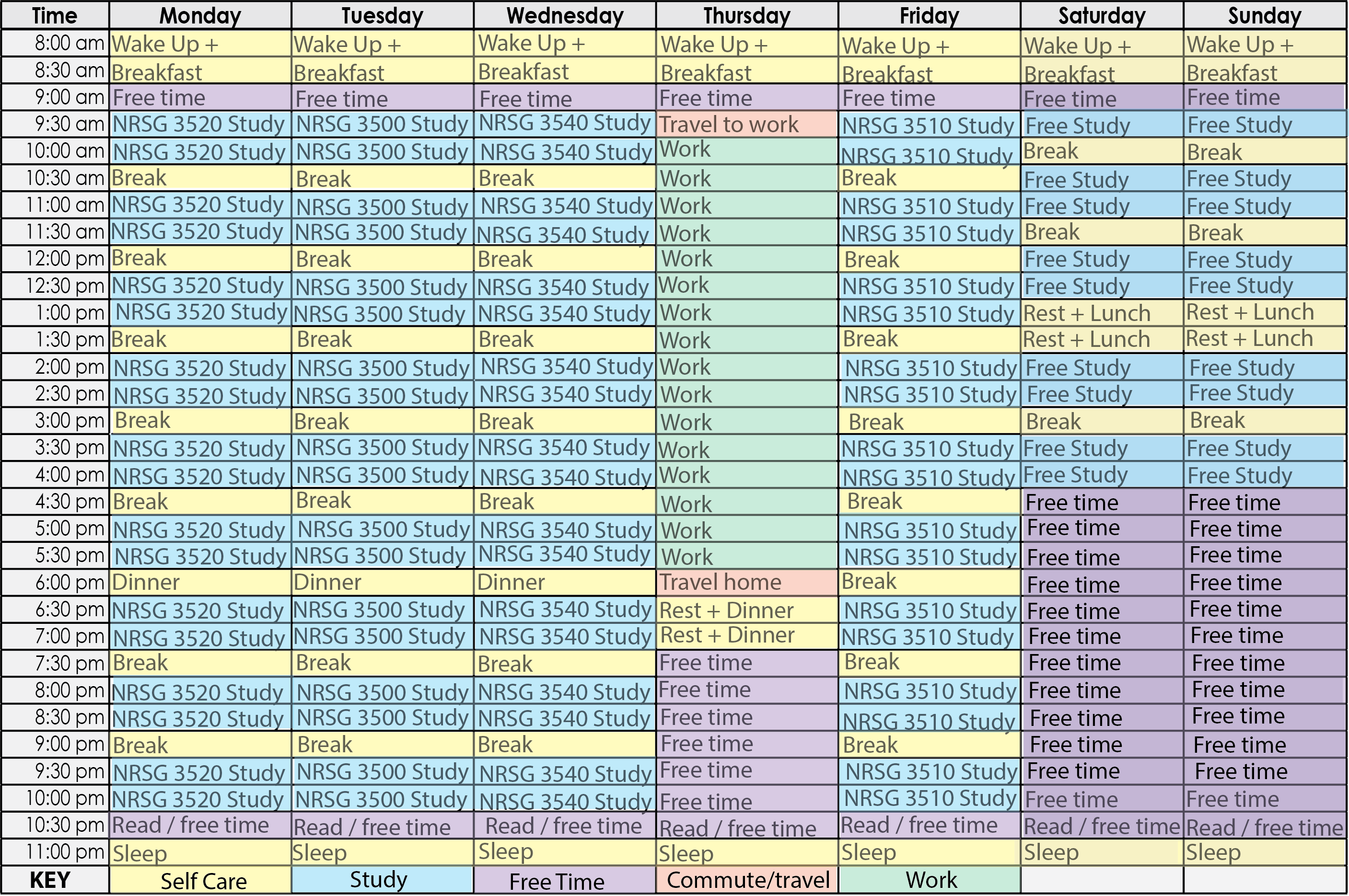Weekly Planning and Reflection
In online courses, content and reflection are often organized by week. The week’s content may include reading assignments, synchronous (real time) online classes, videos, PowerPoint presentations, quizzes, and online forums. It is a good practice to visit your Moodle site at the beginning of each week to get an overview of what will be required in the week ahead.
Another good practice to support your learning is to write a weekly summary and reflection. Note down the key concepts you have mastered, how they connect to previous and current courses, and how you will use this information going forward. These summaries will be useful when you prepare for larger tests and assessments.
Weekly Schedules
Online learning requires you to set your own weekly rhythm. Even when you do not have a physical class to attend at a designated time, you still need to designate “class” times for focused learning. An online class is likely to require approximately 10 hours of focused work per week.
Your weekly schedule includes your designated learning time, work commitments, volunteer roles, practicum placements, as well as any other regular events in your week. A weekly schedule is a good tool to evaluate whether your time use allows you to meet your overall goals. Do you have enough time for study? Is there time to maintain a healthy lifestyle? Analyze the example student schedule below. What do you notice about how this student has planned their week?

Principles to consider:
- Designate multiple, shorter blocks for study for each course. Shorter blocks of time allow you to maintain focus, study efficiently, and maintain momentum through the course. Avoid the temptation to schedule work for a course on only one day per week.
- Schedule regular breaks.
- Plan a schedule that you can stick to – and then hold yourself accountable to following the schedule. Ask friends or family to help.
- Designated places along with times for study. This will help you to maintain a break between study, family/social life, and work.
